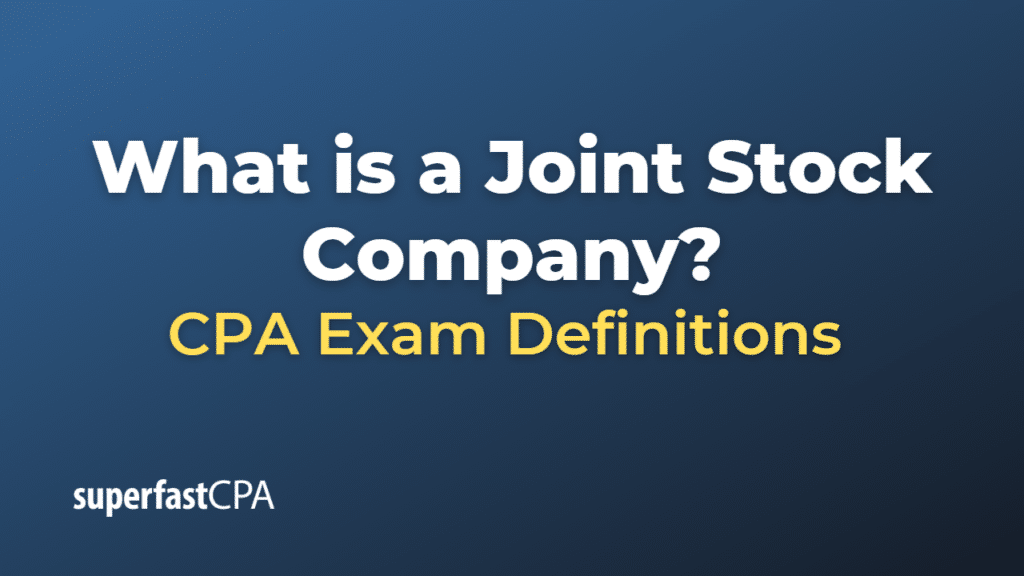Joint Stock Company
A Joint Stock Company (JSC) is a type of business organization that is owned by shareholders and has a separate legal identity from its owners. It’s similar in many ways to a corporation, and in fact, the terms are used interchangeably in some countries.
Each shareholder in a JSC owns stock (also known as shares) representing a portion of the ownership of the company. The ownership stake of each shareholder is directly proportional to the number of shares they own relative to the total number of shares issued by the company.
Key characteristics of a Joint Stock Company include:
- Limited Liability: Shareholders’ liability is limited to the amount of their investment in the company. In other words, if the company goes bankrupt, shareholders can lose their investment but their personal assets are not at risk.
- Transferability of Shares: Shares in a JSC can usually be bought, sold, or transferred freely among existing shareholders and potential investors, unless there are restrictions stated in the company’s bylaws.
- Separate Legal Entity: A JSC has its own legal status separate from its owners. It can own property, sue and be sued, enter into contracts, and perform other business activities in its own name.
- Perpetual Existence: The company continues to exist even if the shareholders change, die, or sell their shares.
- Management: JSCs are typically managed by a board of directors elected by the shareholders. The board is responsible for making major decisions for the company and overseeing its overall operation.
Examples of Joint Stock Companies include large corporations such as Apple, Microsoft, and Amazon. These companies issue stock that can be purchased by investors, who in turn gain a proportionate claim on the company’s earnings and assets.
Example of a Joint Stock Company
Let’s say a group of investors decide to start a tech company, named “Innovative Tech Inc.” Each of the investors contributes capital to the company and in return, they receive shares of stock in the company. The amount of stock each investor receives is proportional to the amount of capital they contribute. For example, if Investor A contributes $500,000 and the total capital contributed by all investors is $5,000,000, Investor A receives 10% of the company’s shares (since $500,000 is 10% of $5,000,000).
Innovative Tech Inc. is a separate legal entity, meaning it can enter into contracts, hire employees, purchase property, and sue or be sued under its own name. The investors, now shareholders, have limited liability, meaning they cannot be held personally liable for the company’s debts beyond the amount they invested.
The shareholders elect a board of directors, who are responsible for overseeing the management of the company and making significant business decisions. The day-to-day operations of the company are handled by executives who are appointed by the board of directors.
The company’s shares can be sold or transferred by the shareholders. If Innovative Tech Inc. becomes successful and profitable, the value of its shares may increase, providing a return on investment for the shareholders. Conversely, if the company does not perform well, the value of the shares may decrease.
This is a simplified example and real-world scenarios can be much more complex, involving regulatory requirements, financial reporting obligations, and other considerations.













